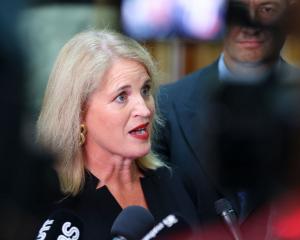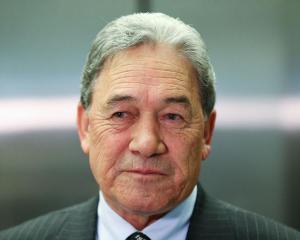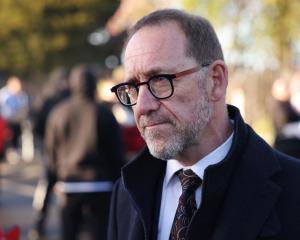[comment caption=Has the taping scandal badly wounded National?]The unguarded comments of National MPs, taped at the party's annual conference last weekend, are embarrassing for the party.
Not only do they appear to contradict its publicly-stated position, but they raise the spectre of a return to the politics of the 1990s - a possibility given added weight by the number of survivors from those heady days who now serve under John Key.
At the conference, someone secretly taped finance spokesman Bill English talking about the possible sale of Kiwibank and Lockwood Smith talking about possible plans to implement policies that would not be released during the election campaign.
The leaks appear to undermine the centrist line that party leader John Key has carefully articulated in his public comments - and have given the Government a "secret agenda" stick with which to beat National.
Nine members of former prime minister Jenny Shipley's 1999 cabinet - including Mr English and Dr Smith - remain in John Key's caucus, and the weekend's revelations are sure to fuel speculation that they may not have entirely left that era's ideology behind.
Some may find it difficult to imagine, for example, that people like Mr English, Murray McCully, Maurice Williamson, Dr Smith and David Carter are no longer supporters of the privatisation that was a core policy when the party was led by Jim Bolger, and MPs like Sir William Birch, Ruth Richardson and Mrs Shipley.
It was Mrs Shipley who, as social welfare minister, slashed benefit payments.
National also introduced a superannuation surcharge, and removed it only when it was forced to form a coalition with New Zealand First leader Winston Peters and his MPs in 1996.
The introduction of Mr Peters as treasurer softened the damaging image of National as a hard-right party to one of more centre-right leanings.
When Mrs Shipley sacked Mr Peters and appointed Mr English as treasurer, the party returned to more familiar territory.
Under Mrs Shipley, a cobbled together National-led government cut pensions, introduced state house market rents and deregulated accident compensation.
Some of the nine MPs still in Mr Key's caucus were acolytes of Miss Richardson - committed to private enterprise and individual liberty - and they were promoters of the free market and small government.
They were part of a government that established Crown Health Enterprises (where you paid to go to a hospital), the sale of New Zealand Rail, and the Bank of New Zealand.
National has led Labour in the polls to such an extent that, in theory, it could govern on its own.
Unfettered by the need to compromise over policy with smaller parties, that would give National the freedom to implement policies more radical than have been released so far by Messrs Key and English.
But with the gap between the two major parties narrowing, Mr English has been warning delegates that National is unlikely to govern on its own.
Possible coalition partner United Future leader Peter Dunne does not support asset sales.
"To go ahead with asset sales in pursuit of some purist ideology, rather than the interests of New Zealand, would be contrary to democracy and the wishes of the voting public," he has said.
National has been economical in its release of policy detail to date.
That could now change. Following the weekend's revelations from Mr English and Mr Smith - however they were ascertained - voters have at least two more legitimate reasons to press National on what it intends to do with legislation such as the minimum wage, four weeks' leave, and accident insurance; and ownership of KiwiSaver, Kiwibank, KiwiRail, Air New Zealand and the state-owned energy companies.










